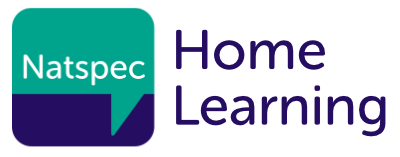Portland College have put together a number of wellbeing resources, focusing on self-regulation and emotional control.
Download:
Useful Resources:
Progressive Muscle Relaxation – Youtube video by Therapist Aid
“Progressive muscle relaxation is a relaxation technique that reduces stress and anxiety in your body by having you slowly tense and then relax each muscle. Progressive muscle relaxation can provide an immediate feeling of relaxation, but it’s best to practice frequently. With experience, you will become more aware of when you are experiencing tension and you will have the skills to help you relax.”
The Zones of Regulation Website
This website is for the Zones of Regulation Curriculum which was designed to foster self-regulation and emotional control. It is something that requires repetition on practice and needs to be started at the level that is right for that individual. This website has lots of useful resources, and has a section focused upon distance-learning which may be particularly useful at this time.
Introduce the approach or activity
The following activities / resources are designed to support individuals to maintain a level of wellbeing as well as developing skills in self-regulation and emotional control.
Resource developed for the following learner cohorts
These activities / resources may be useful in supporting individual’s at home who have difficulty with recognising and communicating their emotions, and who may require support to identify appropriate coping mechanisms to regain control or respond appropriately to the emotion they are experiencing.
Top tips and key considerations
1:1 or group teaching sessions may be required to support learners and families to understand the concepts that can then be practiced at home. This could be live video sessions or potentially through the provision of a workbook with directions for caregivers to follow on how to teach the concepts to their learner.
Emotions can be a difficult subject and it is therefore essential that a learner’s current presentation is considered prior to completing this work as not all elements may be appropriate at any current time (for example, strategies for coping with anger need to be practiced when the learner is calm – when they are actually experiencing the emotion it is not an appropriate teaching opportunity).
During COVID-19 learners are likely to be experiencing a wide range of emotions that they may not have experienced before and be unsure how to communicate these, therefore some of these resources may support them to find ways of expressing this to their caregivers.
It is important that we all have time to relax and feel safe, especially at the moment, one of the resources below has suggestions about how to create a ‘calm down’ or ‘safe’ space within the home that can help the learner find a place to retreat to.
What resources are required?
Parents / caregivers who have the time and opportunity to spend completing work with the learner, or to support video sessions with College staff.
Pens, paper and printed workbooks – potentially additional resources such as coloured card, access to online videos etc.
How will you capture evidence of learning?
The learners could complete reflective logs of their experience. This could include, what happened, how they felt, what they did, how they felt afterwards and what they (or others supporting them) could do differently next time.
Parent / carer feedback into how their learner is emotionally/behaviourally at home, what is working and what isn’t.
Photographs or videos (with consent) of any activities trialled or completed (for example, relaxation practices or the creation of a ‘calm down’ space).

